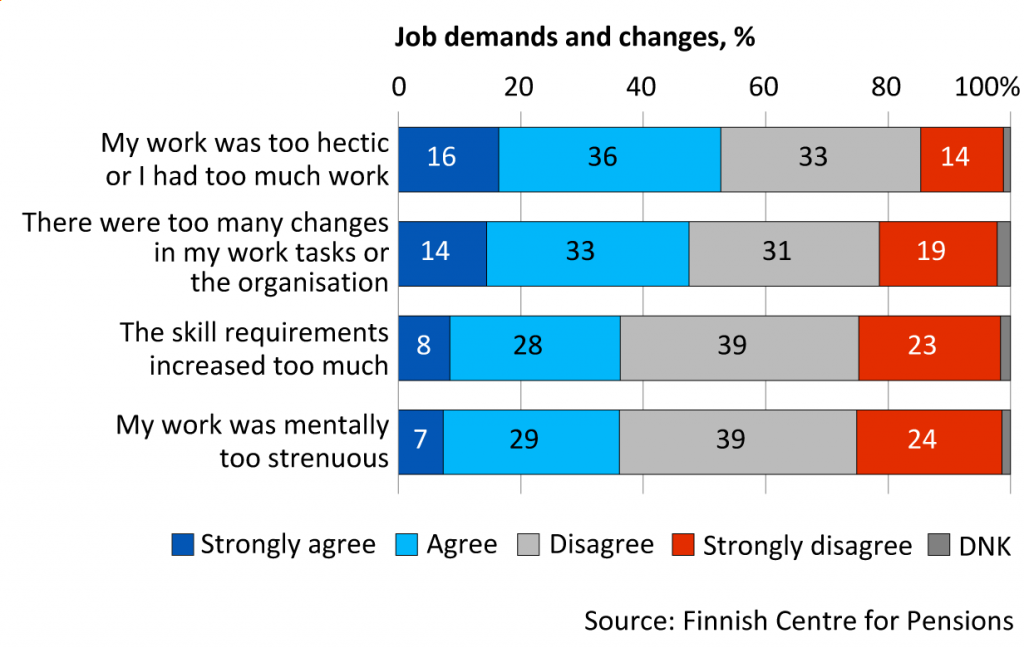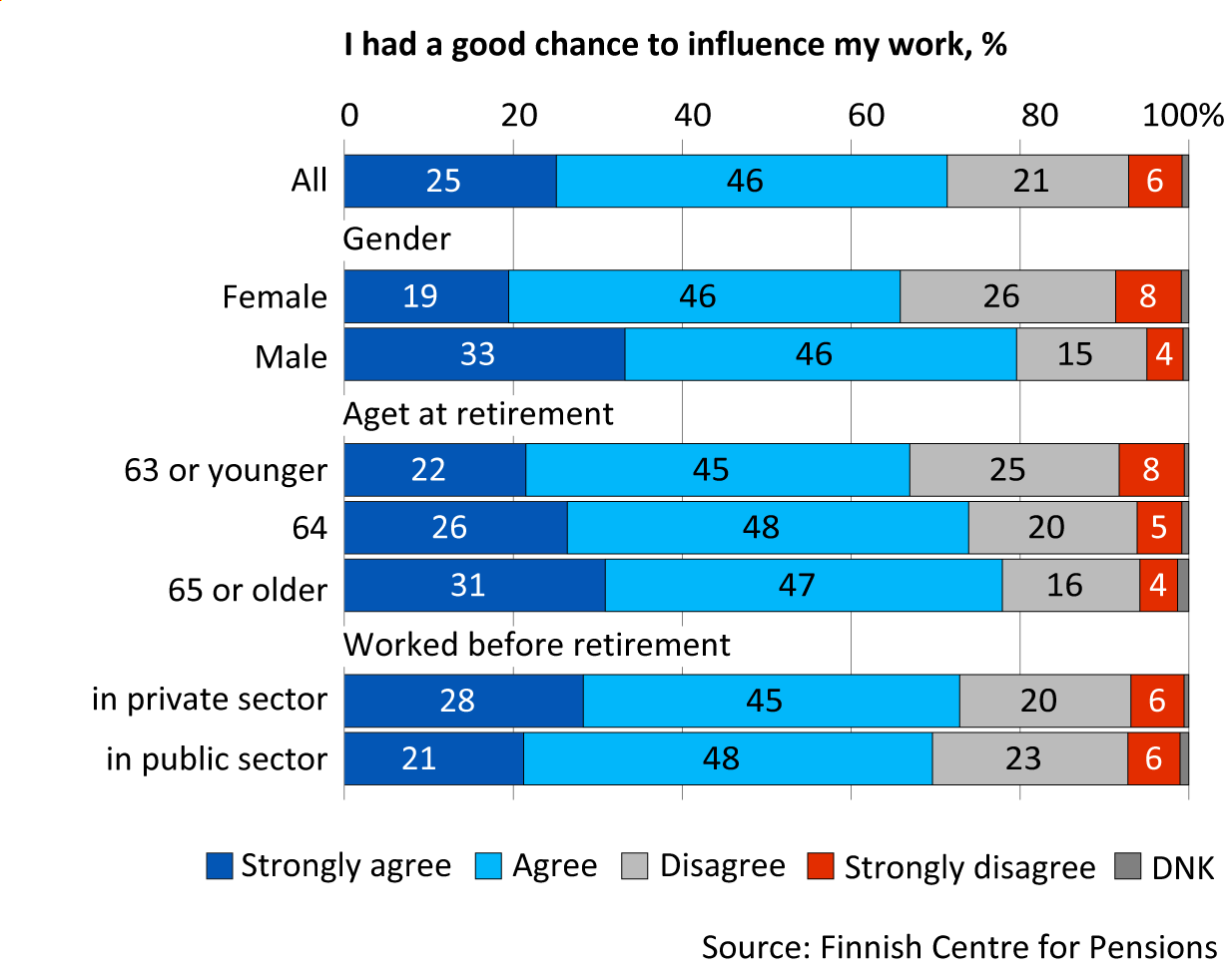Study: Positive perceptions of work and working conditions may encourage late retirement

Work that is found meaningful and perceived to be less hectic and not involving too many changes is linked to late retirement. This is evident from a survey conducted by the Finnish Centre for Pensions that examined the perceptions of persons who retired on an old-age pension between 2019 and 2021.
Nearly all respondents who retired from work liked their pre-retirement work and found it meaningful. However, slightly more than half found their work to be too hectic, and nearly as many assessed that their work had changed too much. Those who retired at age 65 or older had a positive perception of their work more often than those who retired at a younger age.
Those who retired at or close to their retirement age more often felt that their work was hectic and strenuous, that their work had changed and that the skill requirements had increased. These perceptions were more common than average among women, public sector employees and those who assessed that their health and ability to cope had weakened. These groups also felt more often than others that work and the conditions at the workplace had greatly affected their decision to retire.
“Negative perceptions relating to working conditions seem to be factors that push people out of working life”, says Economist Sanna Tenhunen (Finnish Centre for Pensions).

Most felt that the skills of older workers were appreciated at the workplace
Nearly 70 per cent of the respondents felt that the skills of older workers were appreciated at the workplace. However, only slightly more than half felt that they had received the required support to continue working until their retirement age.
Those who retired at a higher age also felt more often than others that they had been able to influence their work, that their working hours had been flexible and that the competence of older workers was appreciated and continued working supported at their workplace.
“The observations indicate that the possibility to influence one’s work may make work more meaningful and increase work motivation, which may extend working life”, Tenhunen states.

Increased leisure time a significant factor in the retirement decision
Nearly two thirds of the respondents felt that increasing leisure time and recreational opportunities affected their decision to retire at least to some extent. More than half wanted to retire while they or their spouse were in good health.
The desire to spend time with close relatives was an important motive for retirement, particularly among women. These factors affected the decision to retire more often than average among those who retired at or close to their retirement age.
Health and ability to cope seldom affect decision to retire
Health and ability to cope influenced the decision to retire relatively seldom. One fifth of the respondents assessed that a weakened ability to cope affected their decision to retire strongly or to some extent. The impact of these factors was strongest among those who retired at a younger age.
“The fairly low incidence of health and ability to cope in the responses may be explained by the respondents being persons who had retired from work, that is, persons whose health and ability to cope had lasted up to their retirement age.”
Nearly 3,400 persons retiring from gainful employment on an old-age pension between 2019 and 2021 responded to the survey.
Research publication: Work, health and social relations underlying retirement
Results in a nutshell
- Respondents who retired close to their retirement age experienced stress factors such as hectic work, changes in tasks and increasing skill requirements more often than those who retired late.
- Respondents who retired at age 65 or older had a more positive than average perception of their work, their ability to influence work and flexible working hours, as well as of their skills as older workers being appreciated at the workplace.
- Respondents closer to their retirement age assessed more often than those who retired late that work and the conditions at the workplace affected their decision to retire.
